Catering
Please don't hesitate to contact us with any bespoke ideas you have.
A catering fridge, also known as a commercial refrigerator or a catering refrigerator, is a specialized refrigerator designed for use in the catering industry. It is specifically built to meet the unique storage needs of catering businesses, such as restaurants, cafes, hotels, and event venues.
Catering fridges differ from regular domestic refrigerators in several ways. They are typically larger in size, have a higher storage capacity, and are built to withstand the demands of a commercial kitchen environment. Here are some key features and characteristics of catering fridges:
Size and Capacity: Catering fridges come in various sizes, ranging from compact under-counter models to large walk-in refrigerators. They offer a larger storage capacity compared to domestic refrigerators to accommodate the storage requirements of a commercial kitchen.
Temperature Control: Catering fridges are equipped with precise temperature control systems to maintain consistent and safe storage conditions for perishable food items. They often have digital or analog temperature displays and adjustable temperature settings.
Shelves and Compartments: These refrigerators typically feature adjustable shelves and compartments to maximize storage flexibility and accommodate different types and sizes of food containers. Removable shelves make it easier to clean and organize the fridge’s interior.
Construction and Durability: Catering fridges are built with robust materials, such as stainless steel, to withstand the rigors of a busy commercial kitchen. The construction ensures durability, resistance to corrosion, and ease of cleaning.
Energy Efficiency: Many catering fridges are designed with energy efficiency in mind, incorporating features such as insulation, LED lighting, and efficient cooling systems. This helps to minimize energy consumption and reduce operating costs.
Ventilation: Commercial refrigerators often have front ventilation or rear-mounted condenser units to facilitate proper airflow and heat dissipation. Adequate ventilation is essential to maintain optimal performance and prevent overheating.
Compliance with Food Safety Regulations: Catering fridges are designed to meet health and safety standards, including food safety regulations. They may have features like self-closing doors, easy-to-clean surfaces, and integrated alarms for temperature fluctuations.
Catering fridges play a vital role in the catering industry by providing a safe and hygienic environment for storing perishable food items. They help maintain the freshness and quality of ingredients, ensure compliance with food safety regulations, and support efficient workflow in a commercial kitchen setting.
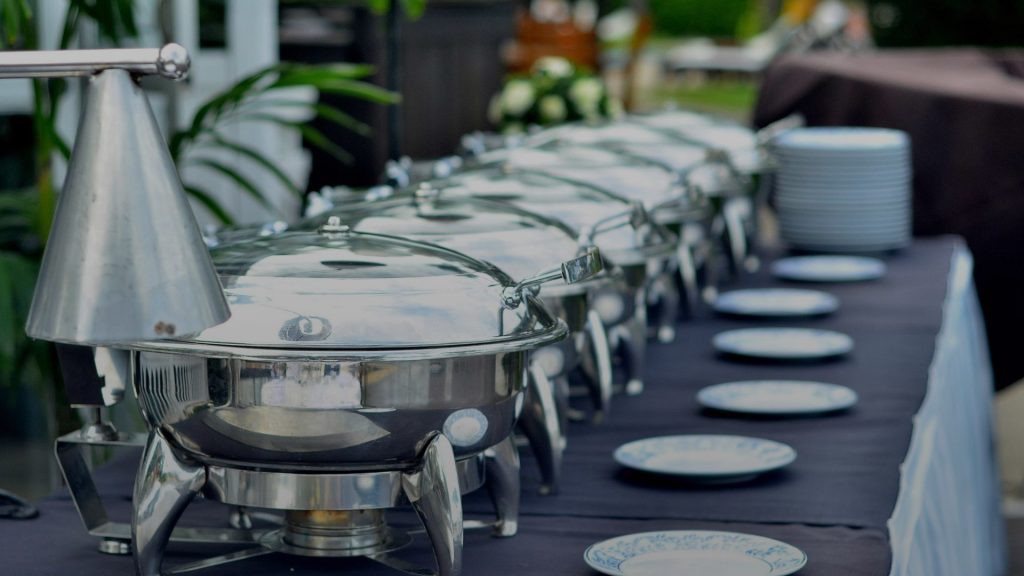
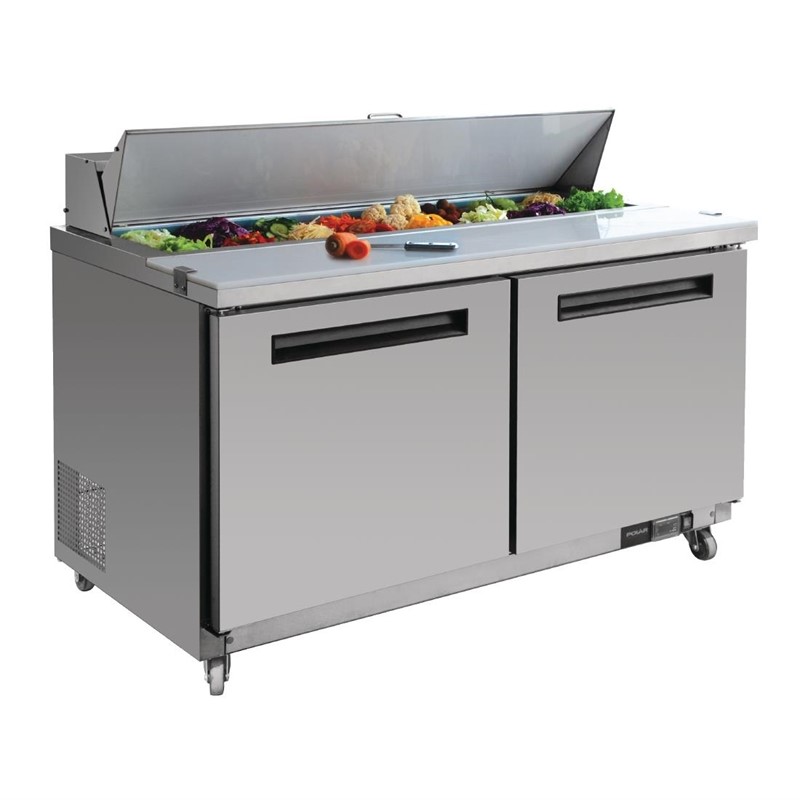
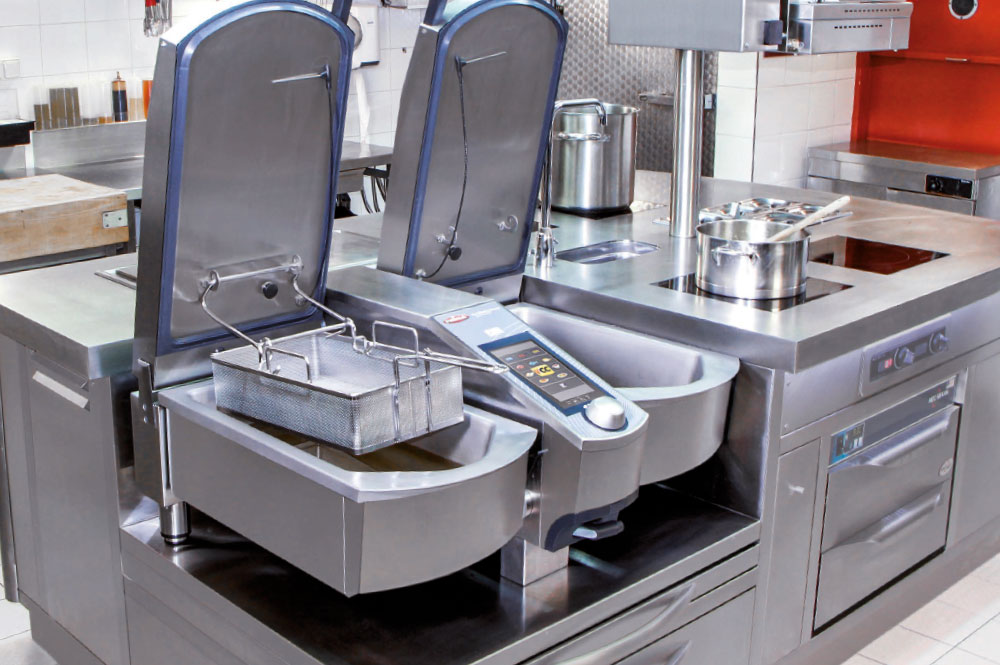
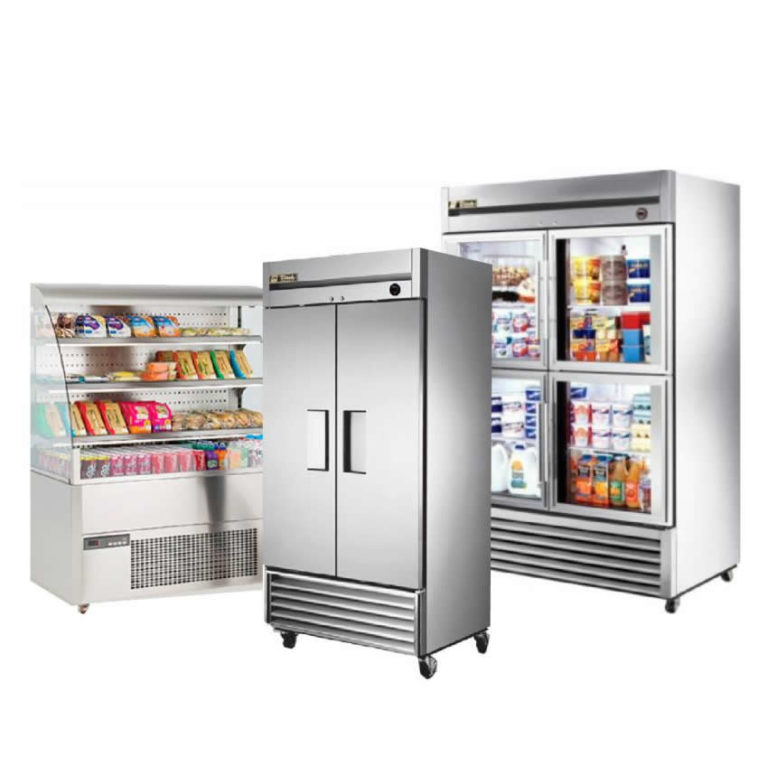
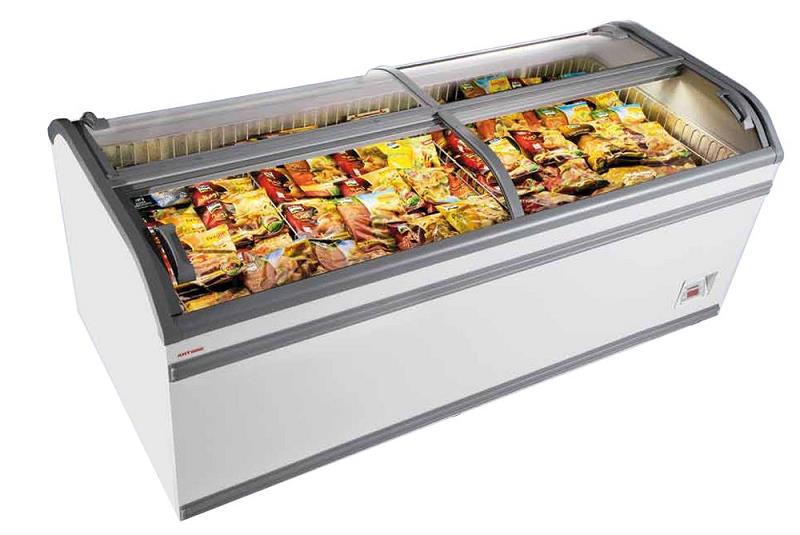
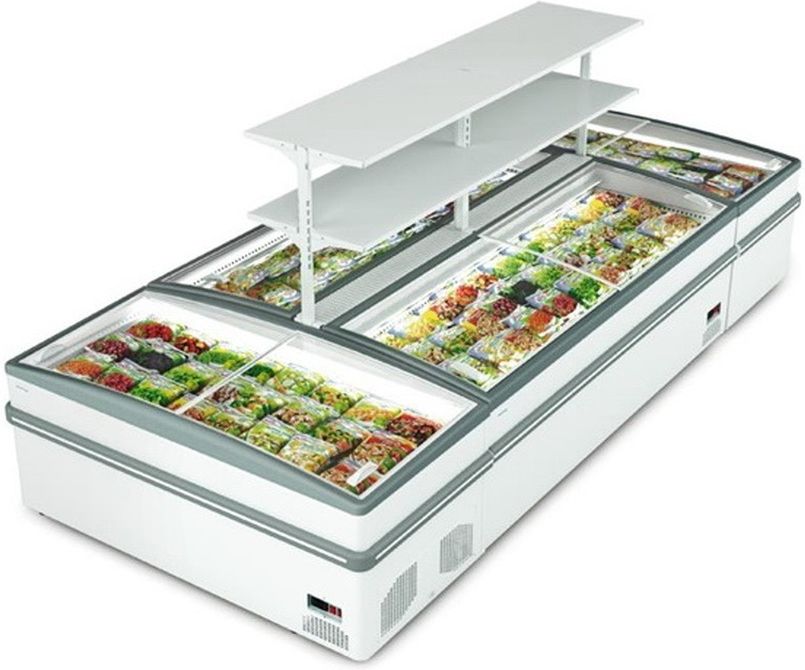
Catering / Freezer
A catering freezer, also known as a commercial freezer or a catering deep freezer, is a specialized freezer designed for use in the catering industry. It is specifically built to meet the unique storage needs of catering businesses, such as restaurants, hotels, banquet halls, and catering services.
Catering freezers are essential for storing frozen food items, preserving their freshness, and ensuring compliance with food safety regulations. They have several features and characteristics that distinguish them from regular domestic freezers. Here are some key features of catering freezers:
Size and Capacity: Catering freezers come in various sizes, ranging from small under-counter models to large walk-in freezers. They offer a larger storage capacity compared to domestic freezers to accommodate the volume of frozen food required in commercial kitchens.
Temperature Control: Catering freezers have precise temperature control systems to maintain consistent and safe storage conditions for frozen food items. They often have digital or analog temperature displays and adjustable temperature settings to meet specific freezing requirements.
Freezing Power: These freezers are designed for quick and efficient freezing. They have robust cooling systems and powerful compressors to rapidly bring the temperature down and maintain a consistent low temperature.
Shelving and Compartments: Catering freezers typically feature adjustable shelves and compartments to maximize storage flexibility and accommodate different types and sizes of food containers. Removable shelves make it easier to clean and organize the freezer’s interior.
Construction and Durability: Similar to catering fridges, catering freezers are built with durable materials like stainless steel to withstand the demands of a commercial kitchen environment. They are designed to be sturdy, resistant to corrosion, and easy to clean.
Energy Efficiency: Many catering freezers incorporate energy-efficient features, such as insulation and LED lighting, to minimize energy consumption and reduce operating costs. Some models may also have advanced defrosting systems to optimize energy efficiency.
Compliance with Food Safety Regulations: Catering freezers are designed to meet food safety regulations and health standards. They may have features like self-closing doors, temperature alarms, and easy-to-clean surfaces to ensure safe and hygienic storage of frozen food items.
Catering freezers are vital for catering businesses as they provide a reliable and efficient way to store and preserve frozen food items. They help maintain the quality and integrity of frozen ingredients, prevent food spoilage, and contribute to efficient food preparation and service in the catering industry.
Catering appliances service refers to the maintenance, repair, and servicing of commercial catering appliances used in the foodservice industry. Catering appliances include a wide range of equipment used for food preparation, cooking, refrigeration, and other essential functions in commercial kitchens and catering businesses.
Here are some key aspects of catering appliances service:
Maintenance: Regular maintenance is crucial to keep catering appliances in optimal working condition and ensure their longevity. Scheduled maintenance involves inspecting, cleaning, and servicing the equipment to identify and address any potential issues before they escalate. This includes tasks such as checking gas and electrical connections, cleaning filters and vents, lubricating moving parts, and calibrating temperature controls.
Repair: In the event of a breakdown or malfunction, catering appliance service technicians are responsible for diagnosing the problem and carrying out repairs. This can involve replacing faulty components, repairing electrical or mechanical issues, and restoring the equipment to proper working order. Timely and effective repairs are essential to minimize downtime and ensure uninterrupted operation in a commercial kitchen environment.
Safety Inspections: Catering appliances service may also involve conducting safety inspections to ensure compliance with relevant regulations and standards. This includes verifying that appliances meet safety requirements, such as gas safety regulations or electrical safety standards, and addressing any potential hazards or risks.
Calibration and Testing: Accurate calibration of catering appliances is crucial to maintain consistent and reliable performance. Service technicians may calibrate temperature controls, timers, pressure gauges, and other relevant components to ensure accurate readings and precise operation. Testing equipment for functionality and efficiency is also an important part of catering appliance service.
Emergency Response: Catering appliance service providers may offer emergency response services to address urgent repairs or breakdowns. They understand the time sensitivity in a commercial kitchen setting and strive to provide prompt assistance to minimize disruption to operations.
Replacement Parts and Upgrades: Service technicians can source and supply replacement parts for catering appliances as needed. They may also provide recommendations for equipment upgrades or modifications to enhance efficiency, performance, and compliance with changing regulations.
Compliance and Documentation: Catering appliance service providers may assist businesses in maintaining proper documentation and records of appliance servicing, repairs, and safety inspections. This documentation can be valuable for regulatory compliance, warranty claims, and maintaining an equipment service history.
Catering appliances service is typically carried out by trained and experienced professionals with knowledge of the specific equipment used in the foodservice industry. Engaging reputable service providers and adhering to recommended service schedules can help ensure the reliability, safety, and longevity of catering appliances, minimizing downtime and maximizing operational efficiency in catering businesses.



